Deeptime Coastline - Symposium Clifton School of the Arts
(2024)

SYMPOSIUM DATE
27 October, 2024
VENUE
Clifton School of the Arts
CO-CURATED
Bianca Hester & Bronwyn Bailey-Charteris in collaboration with Matt Poll
CULTURAL GUIDANCE
Uncle Peter Button and Peter Hewitt
PARTICIPANTS
Uncle Peter Button
Peter Hewitt
Nicole Smede
Brian Jones
Tara Djokic
Tyson Frigo
Bianca Hester
Bronwyn Bailey-Charteris
PHOTOGRAPHY
Billie Acosta
Held during the context of the Lithic Bodies parallel exhibitions at UNSW Galleries and The Clifton School of the Arts, Deeptime Coastline was a symposium that brought together artists, curators, and knowledge holders to explore the stratigraphic layers, ecologies, and narratives embedded within the Illawarra escarpment and coastline on Dharawal land. This gathering sought to illuminate the complex temporalities of the region—from deep-time geological formations to contemporary environmental urgencies—and to consider how these interwoven histories might inform more care-filled relations with Country in the context of accelerating climate change.
Through presentations, discussions, and site-based exchanges, the symposium foregrounded the multiplicity of ways this landscape can be understood and tended to, drawing on perspectives from art, science, and Indigenous knowledge systems. Curated and produced by Bianca Hester and Bronwyn Bailey-Charteris in collaboration with Matt Poll, Deeptime Coastline invited participants to think and feel through the material and cultural strata that shape our shared futures.
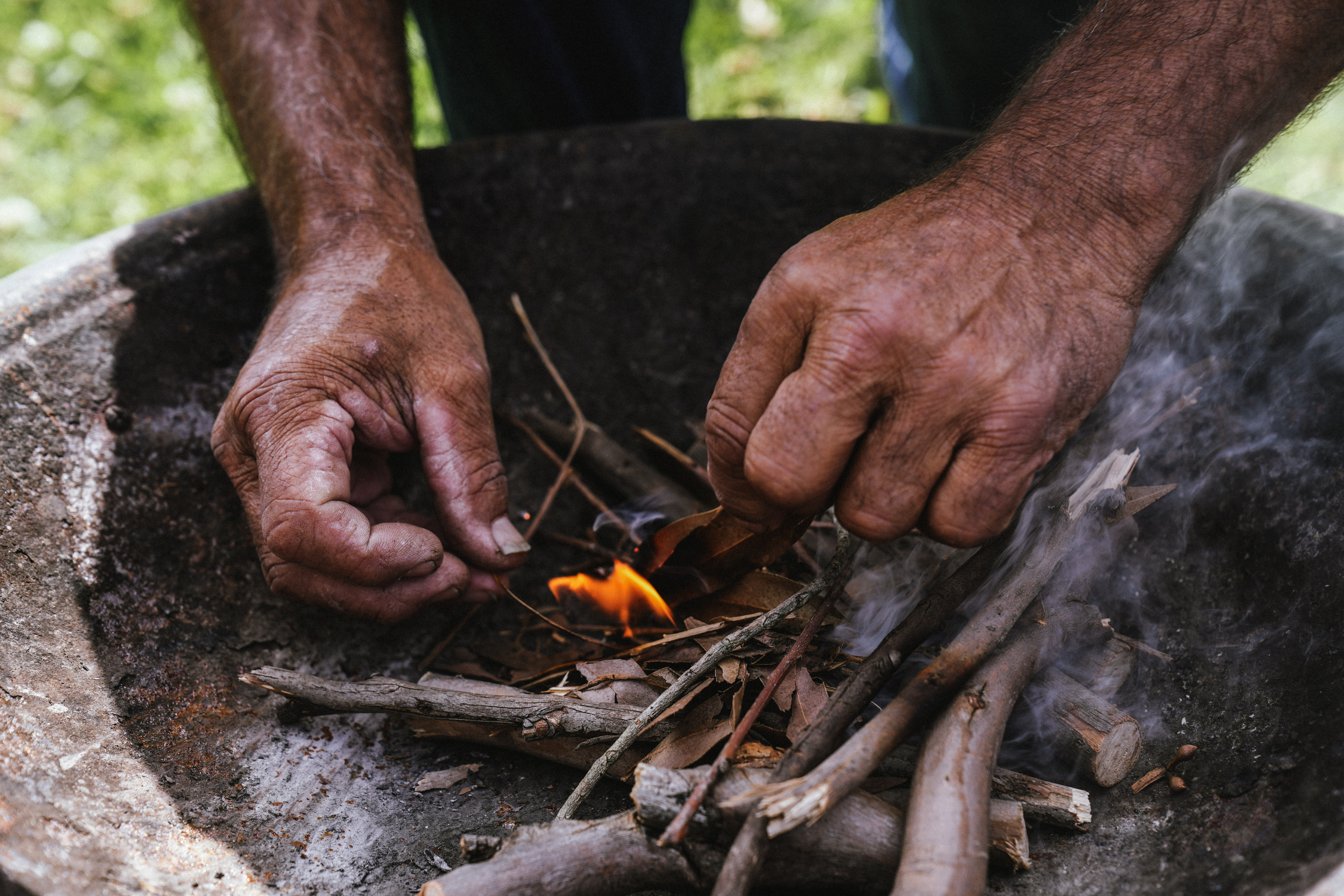
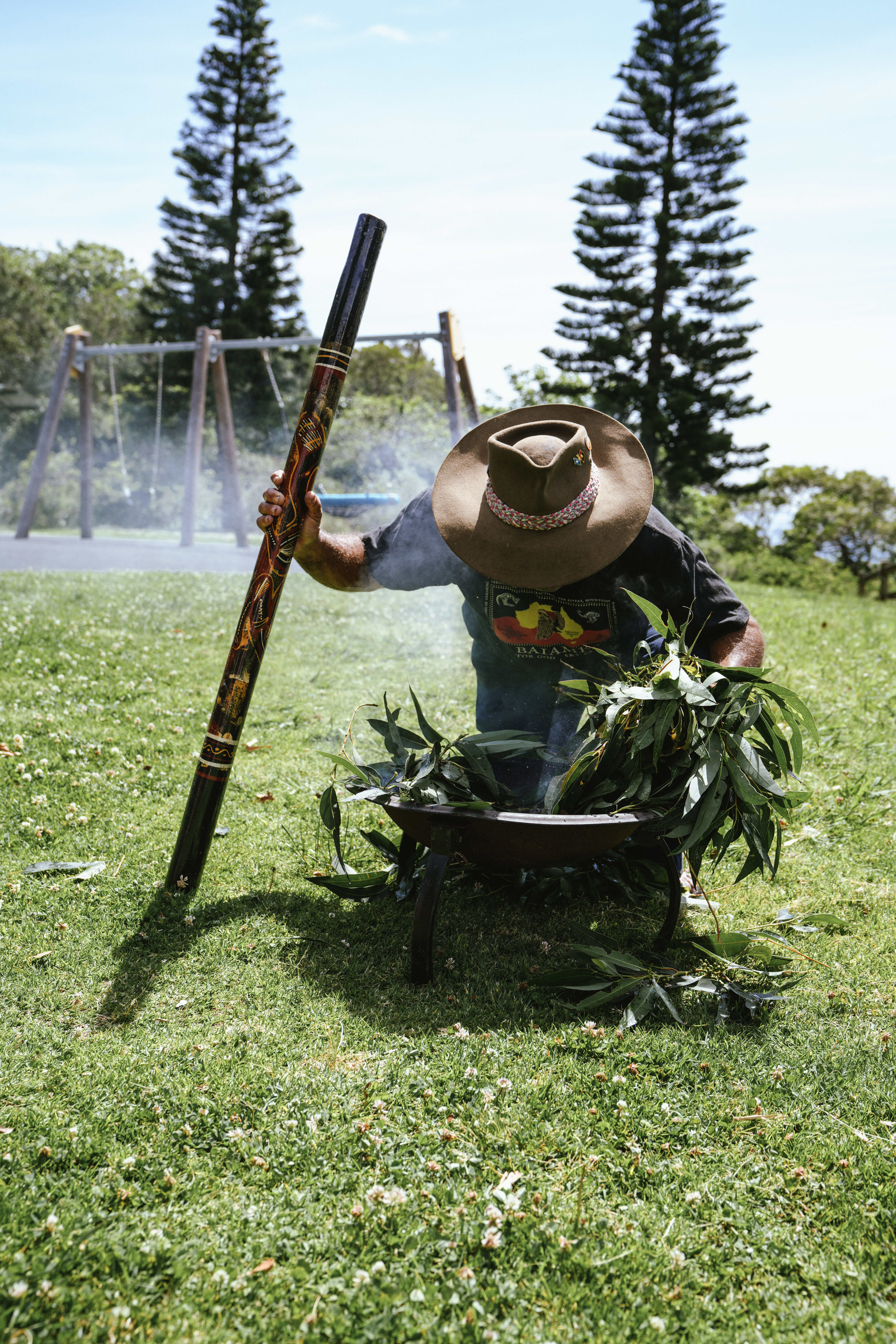
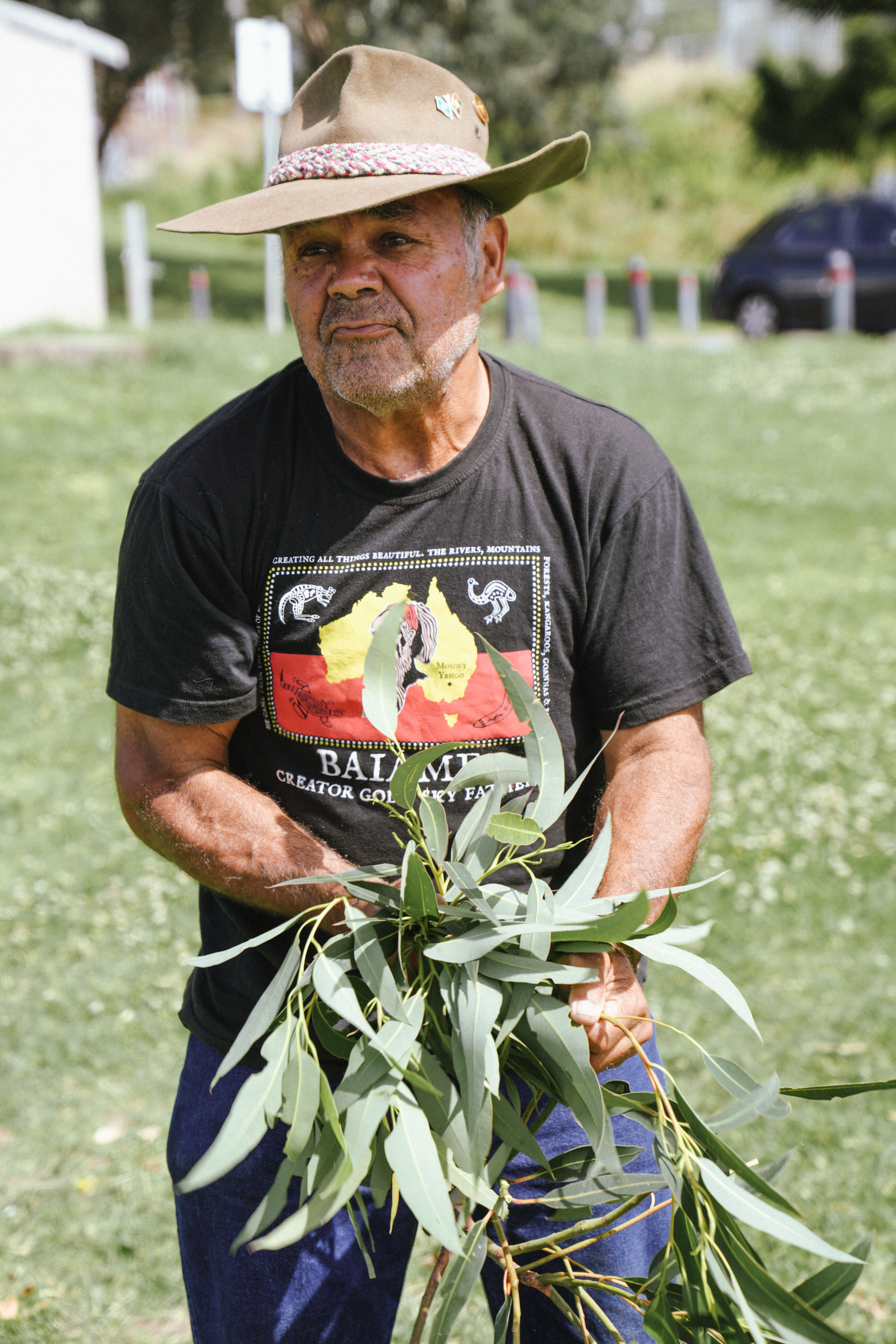
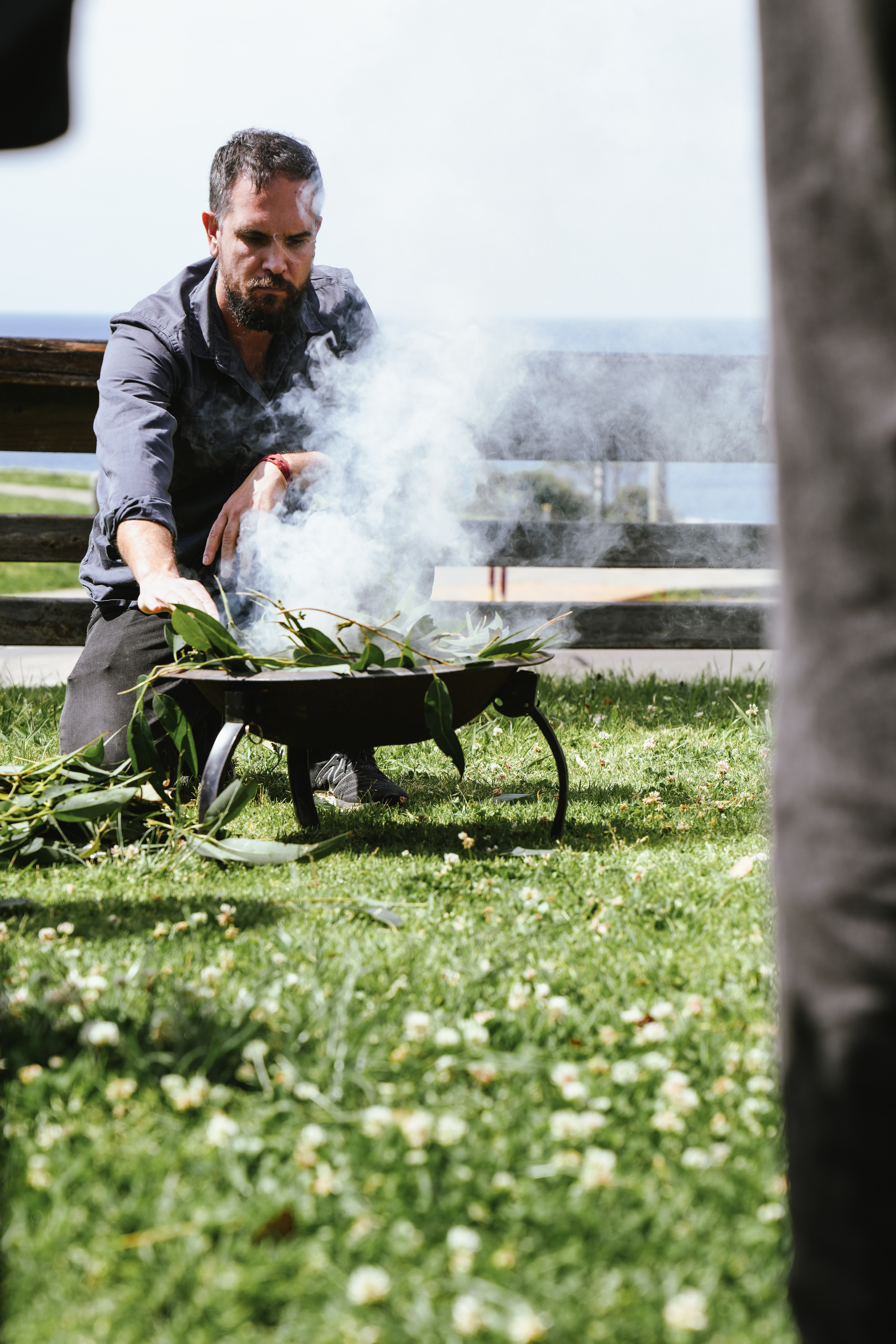
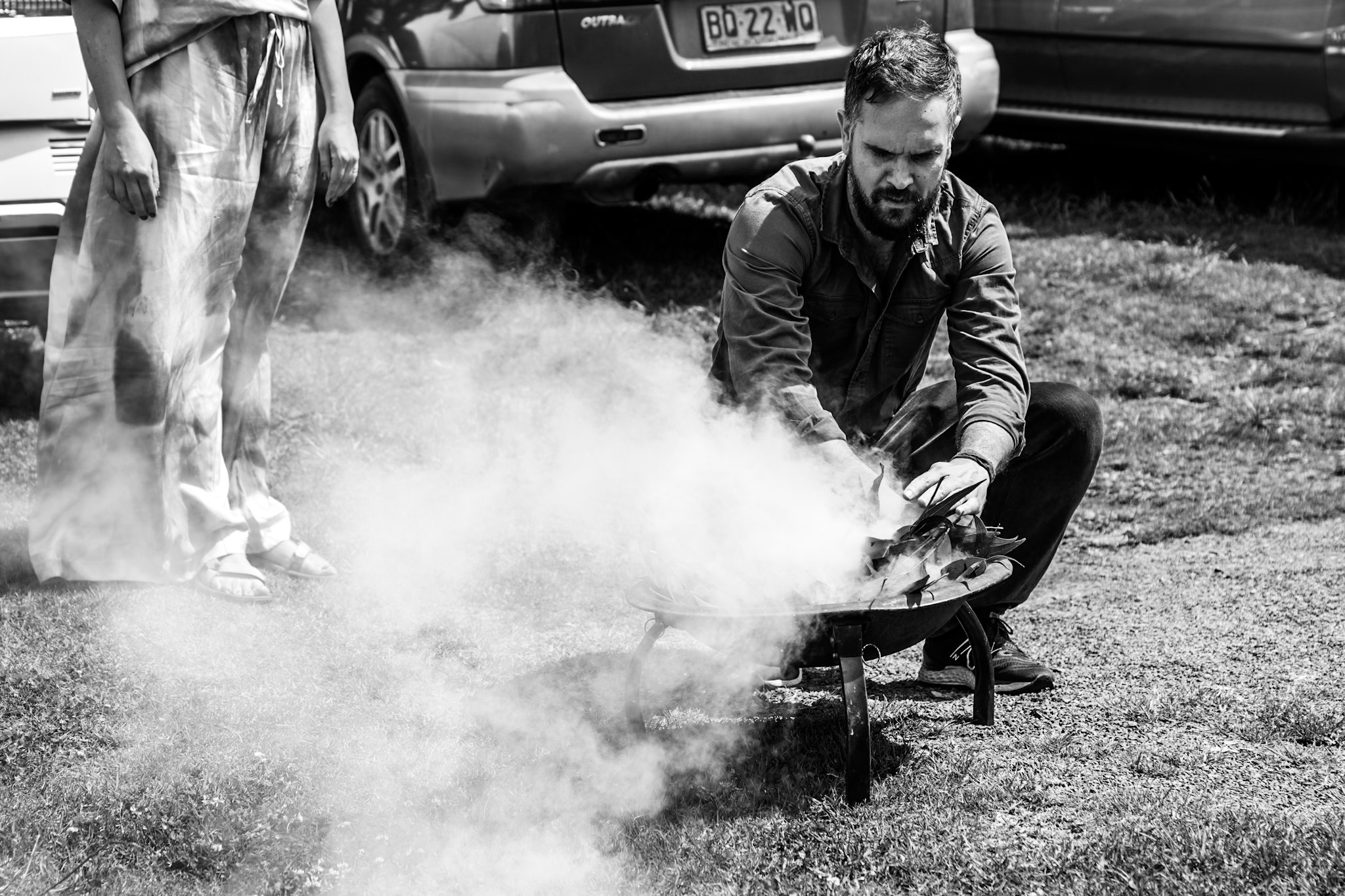
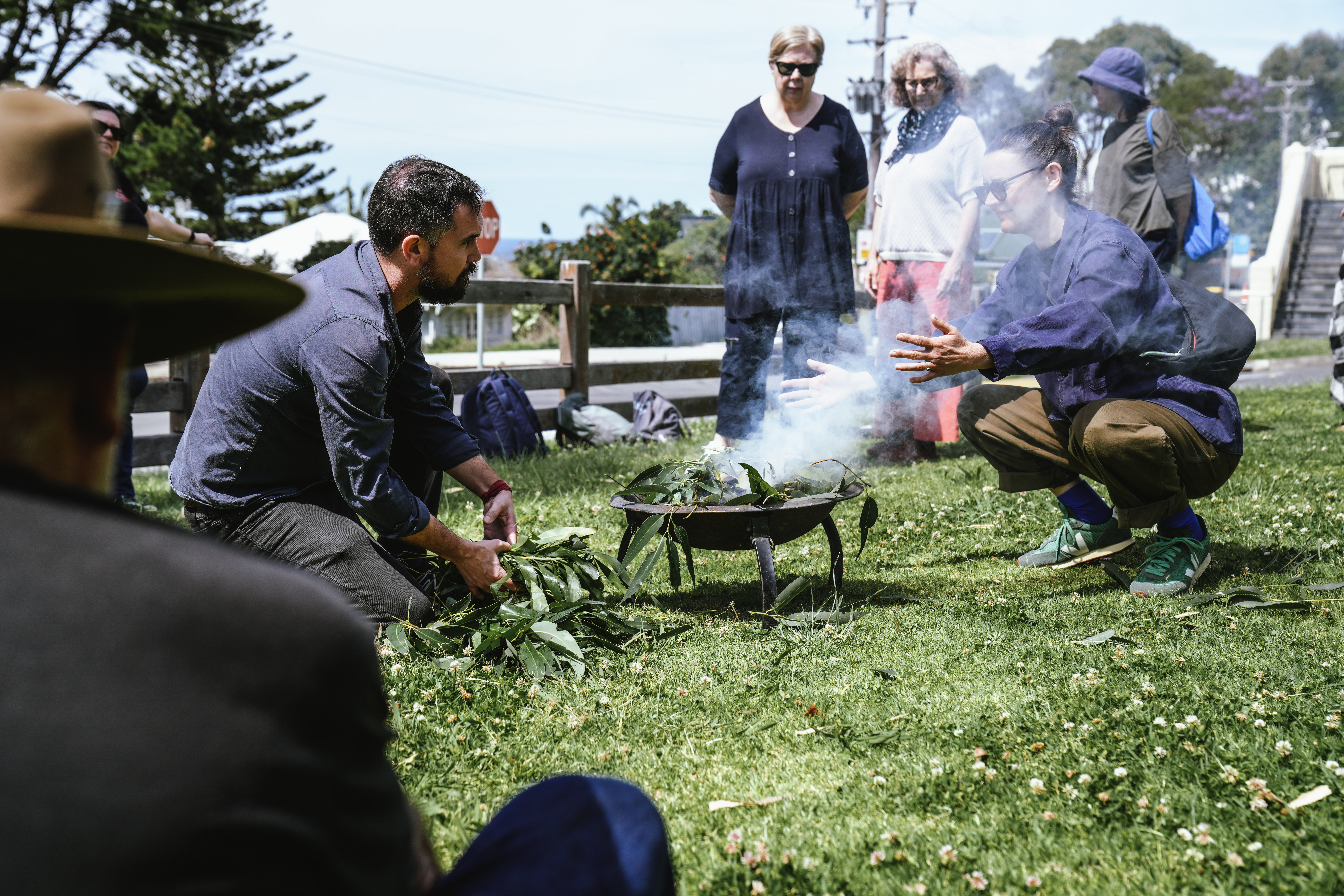
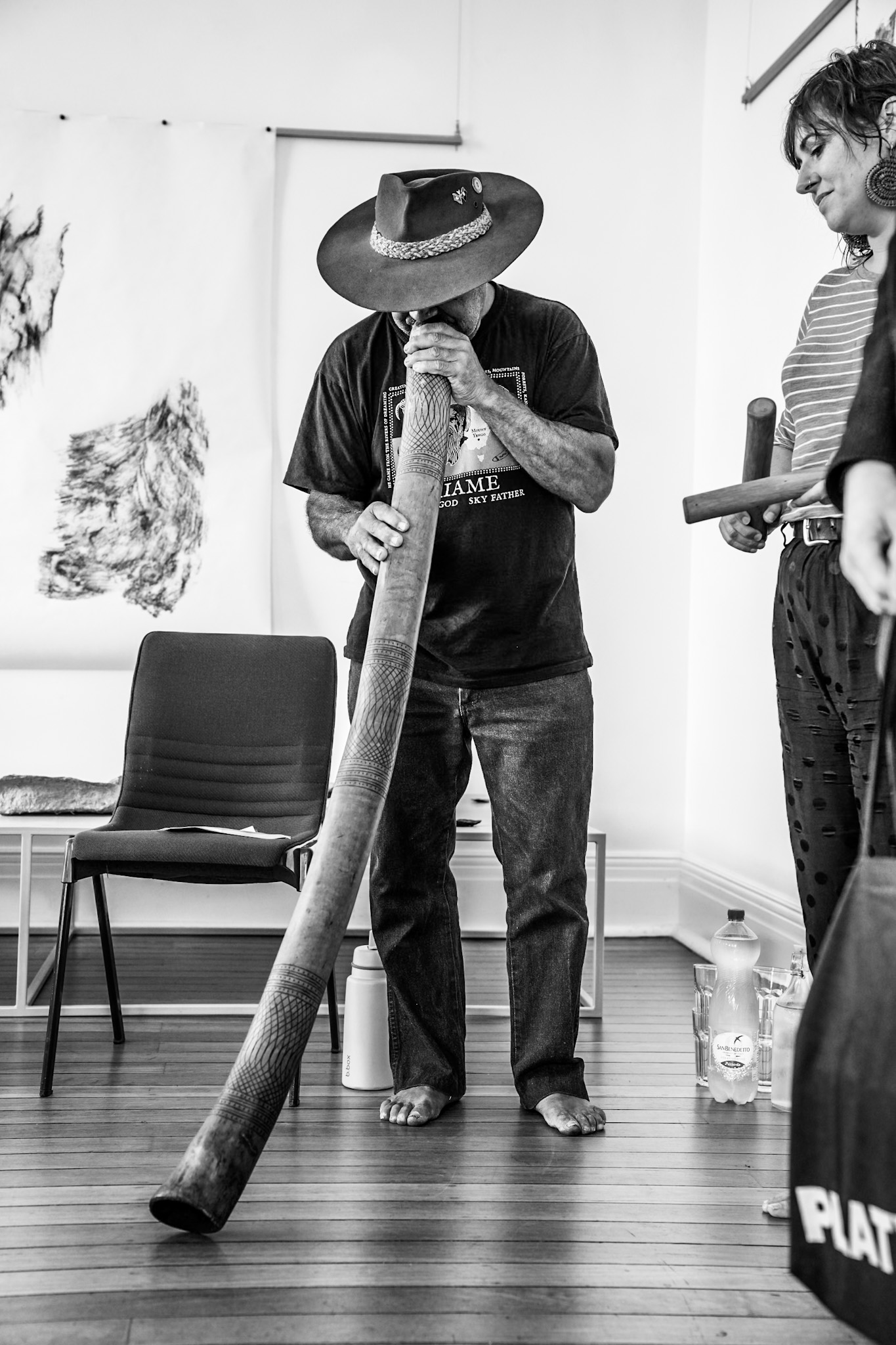
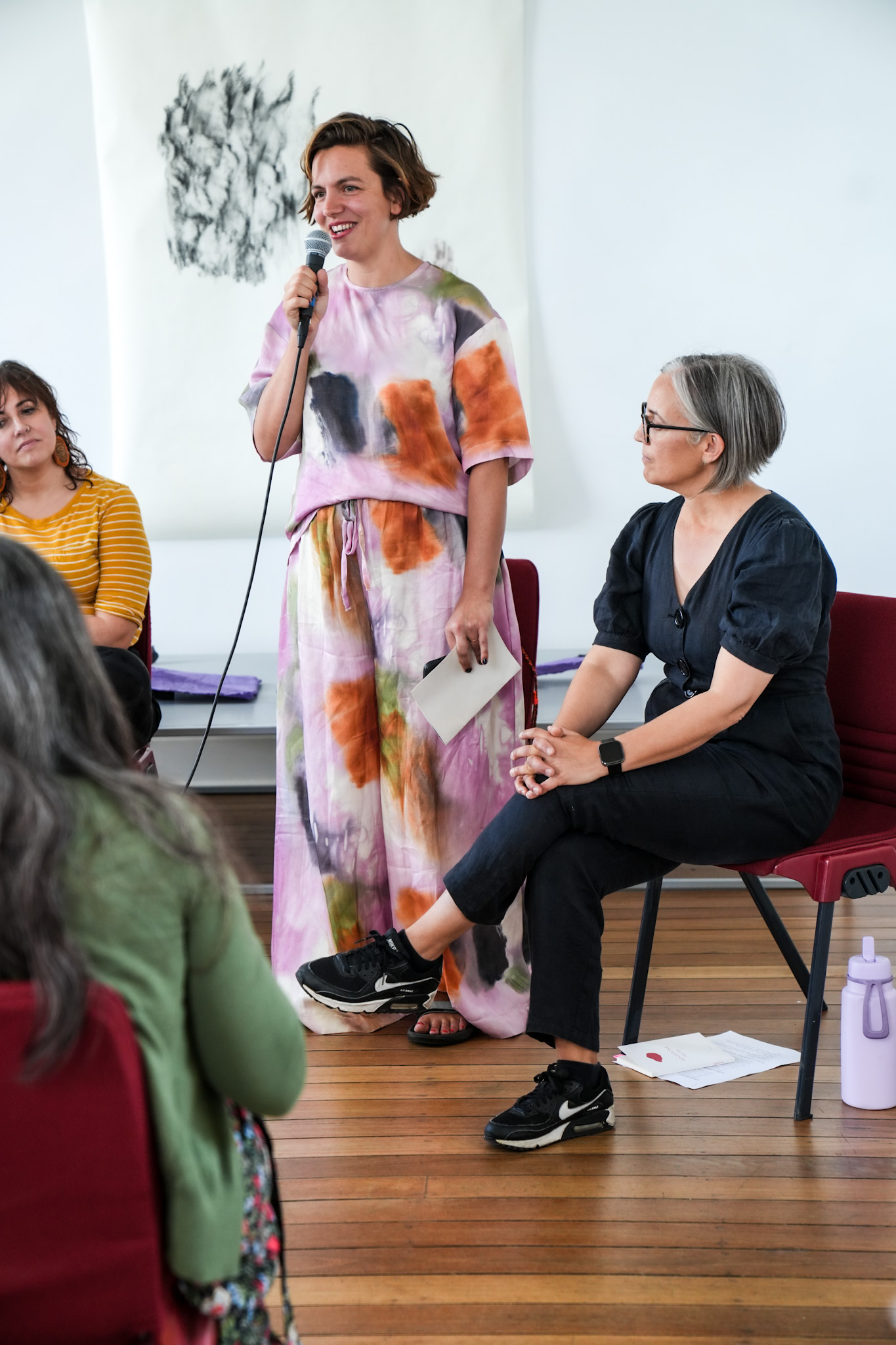
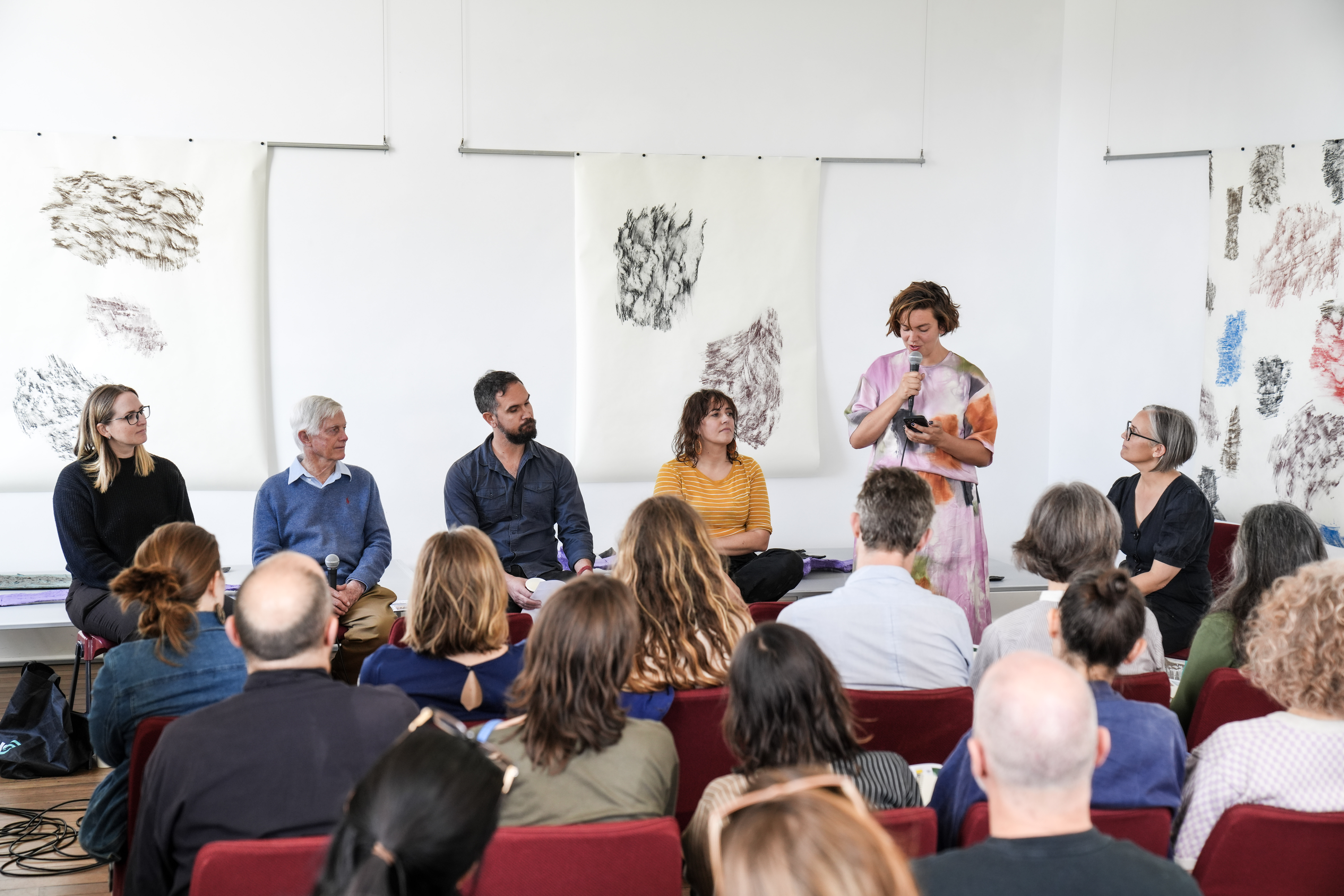
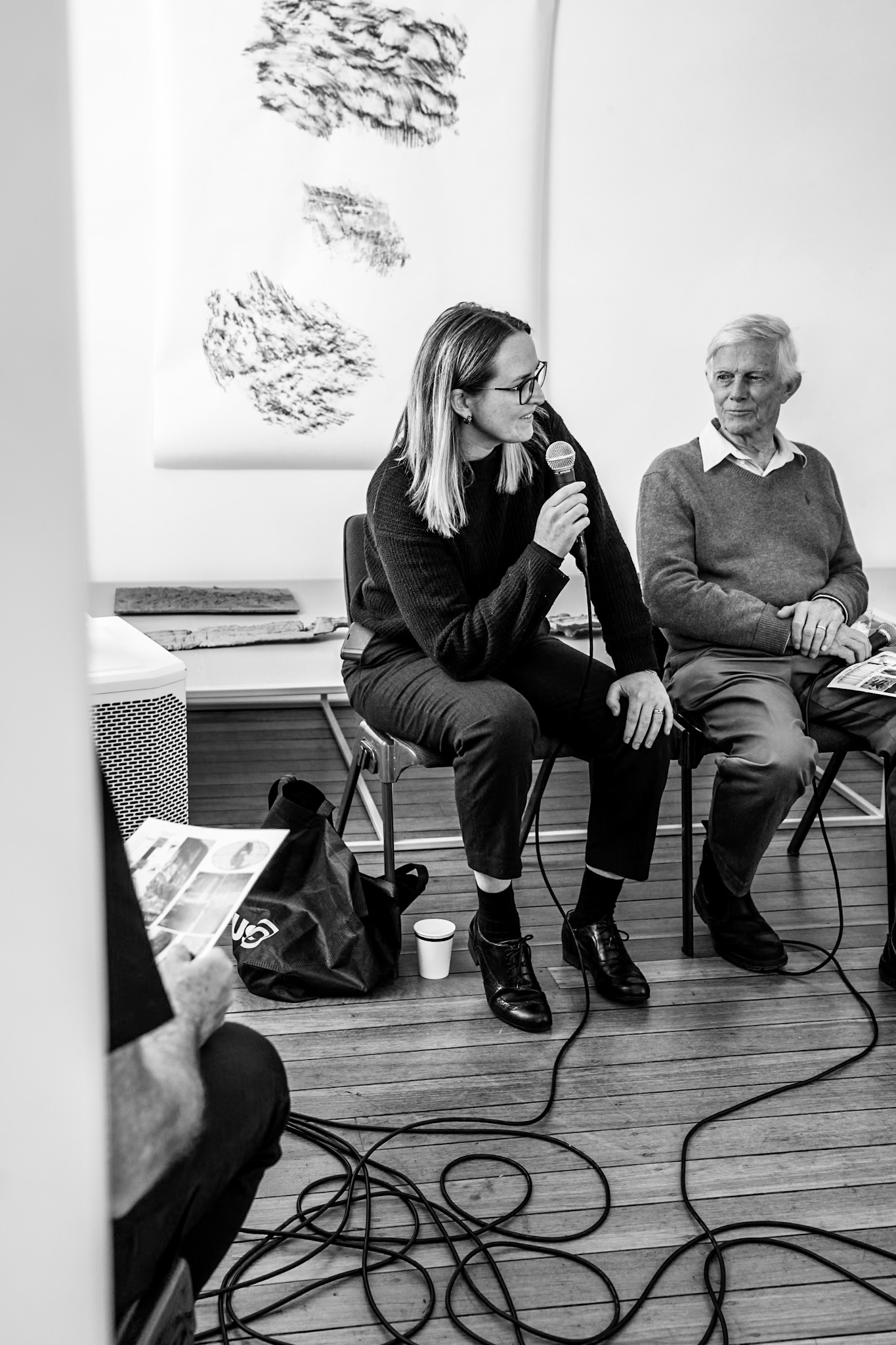
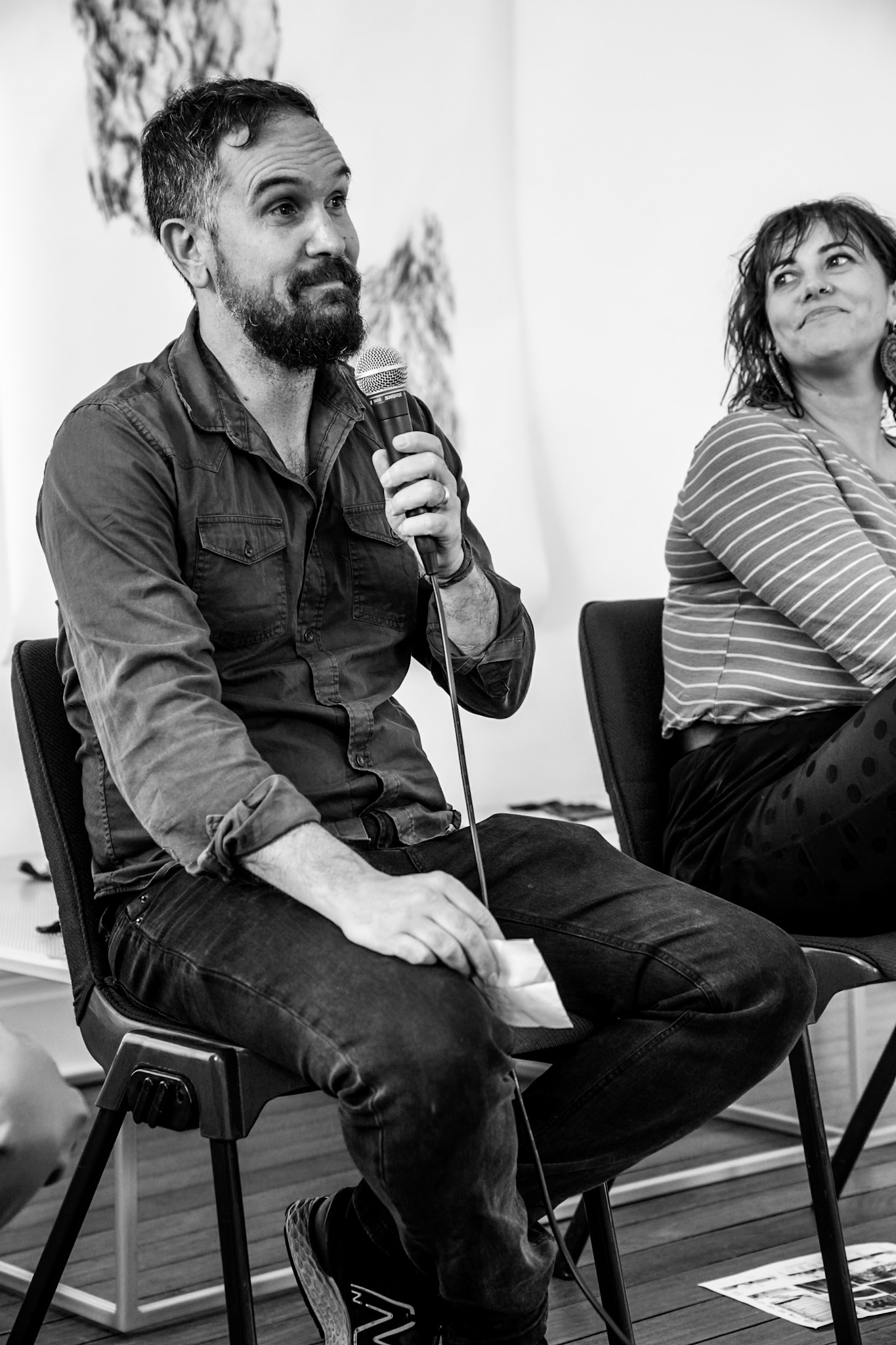
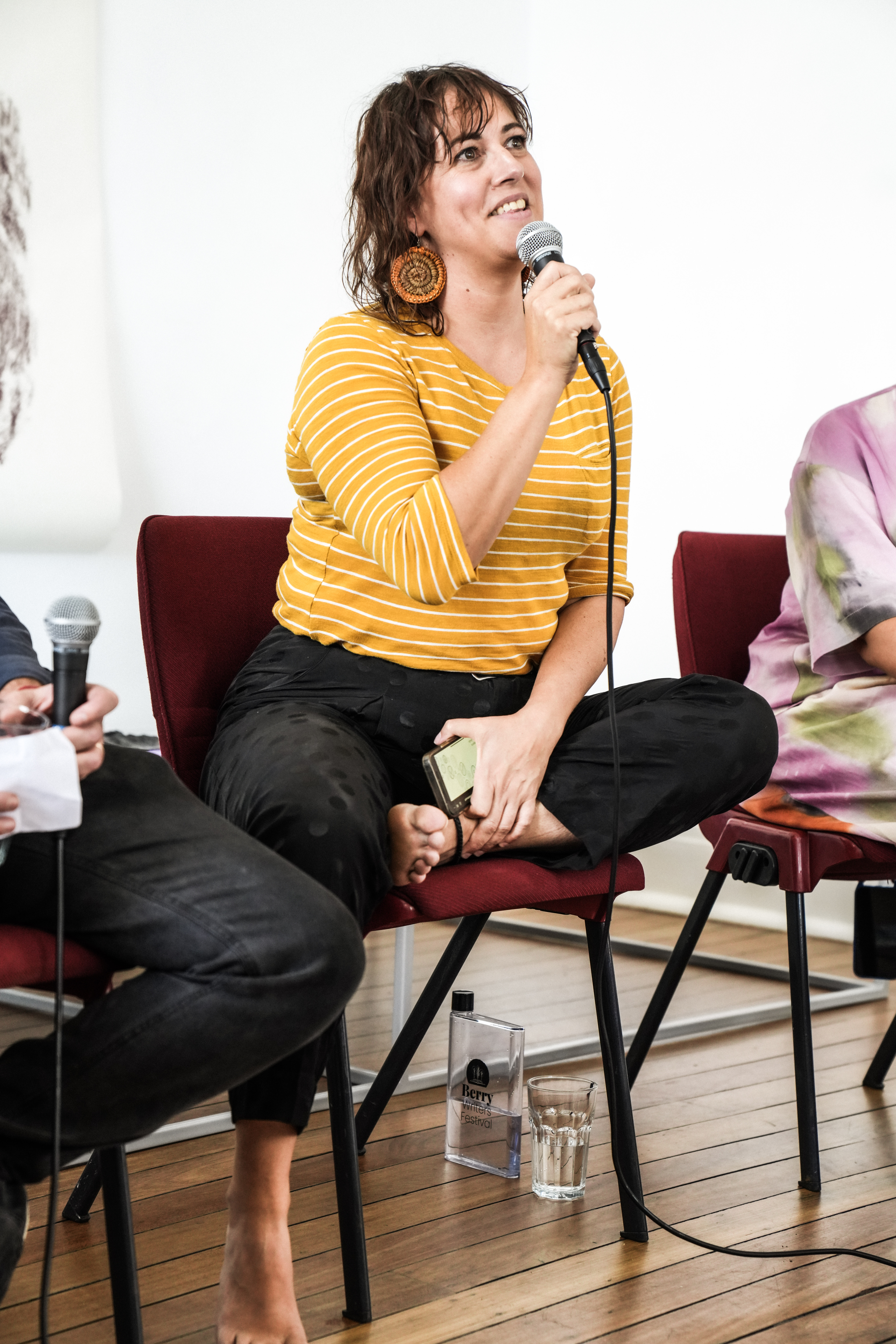
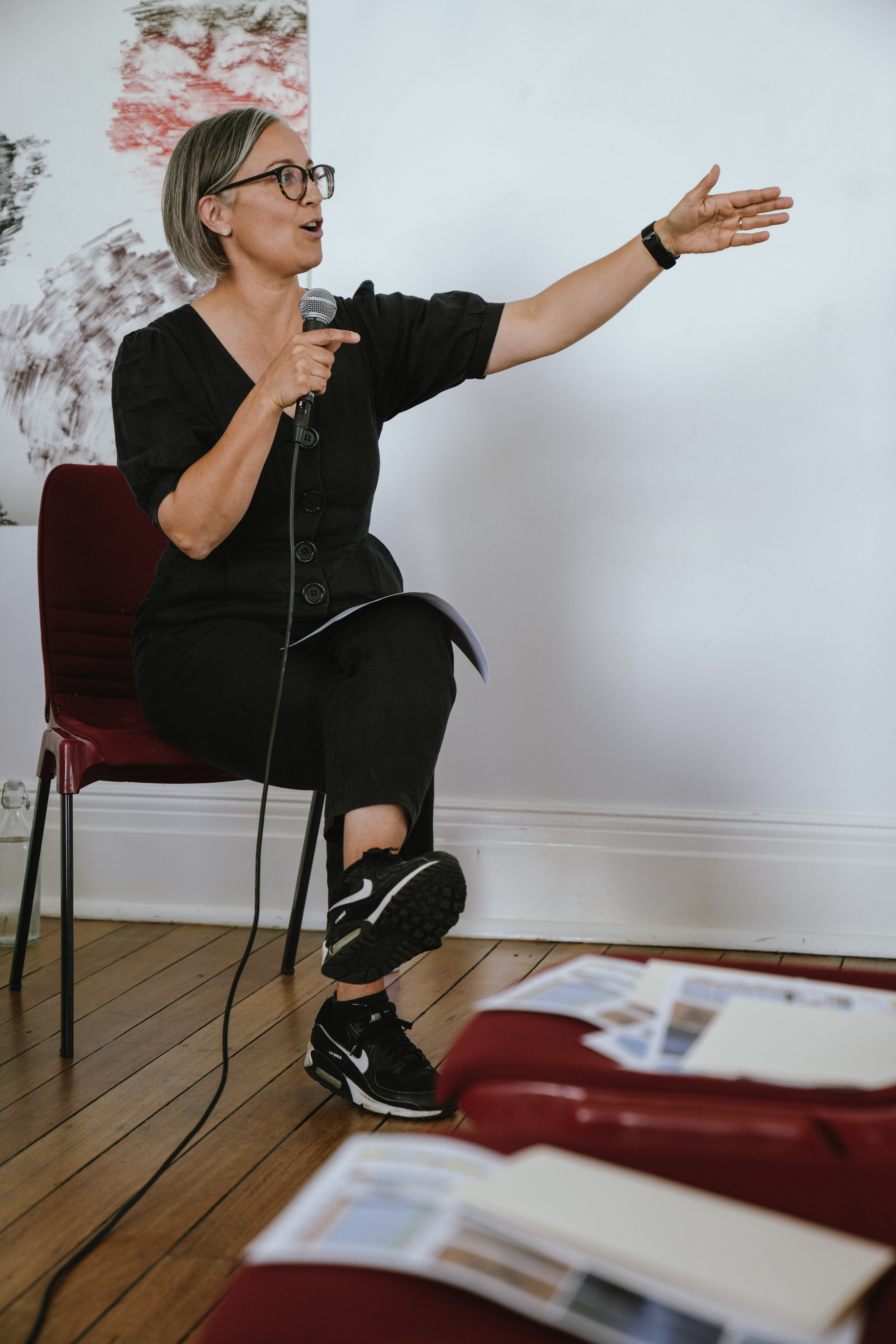
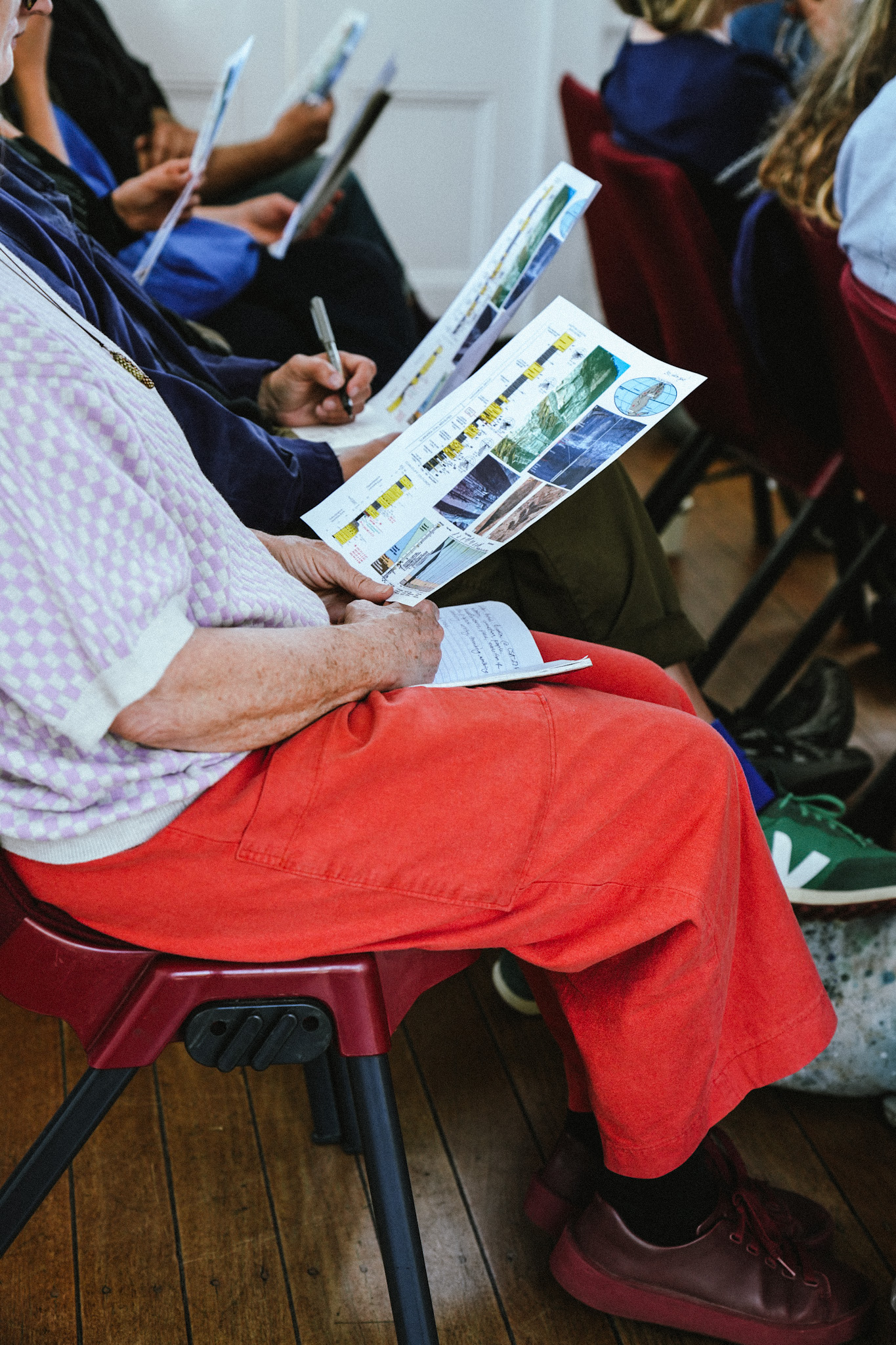
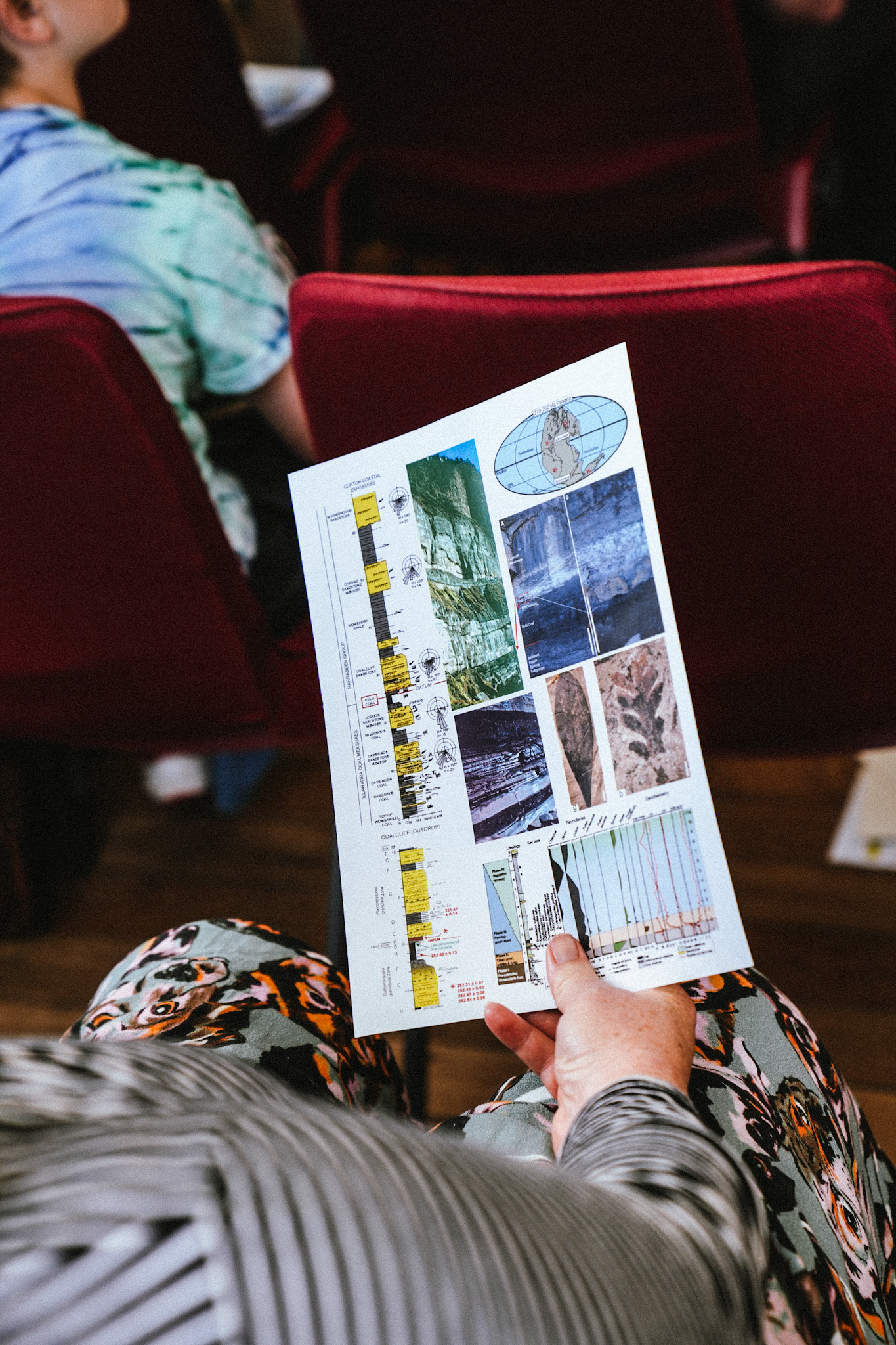
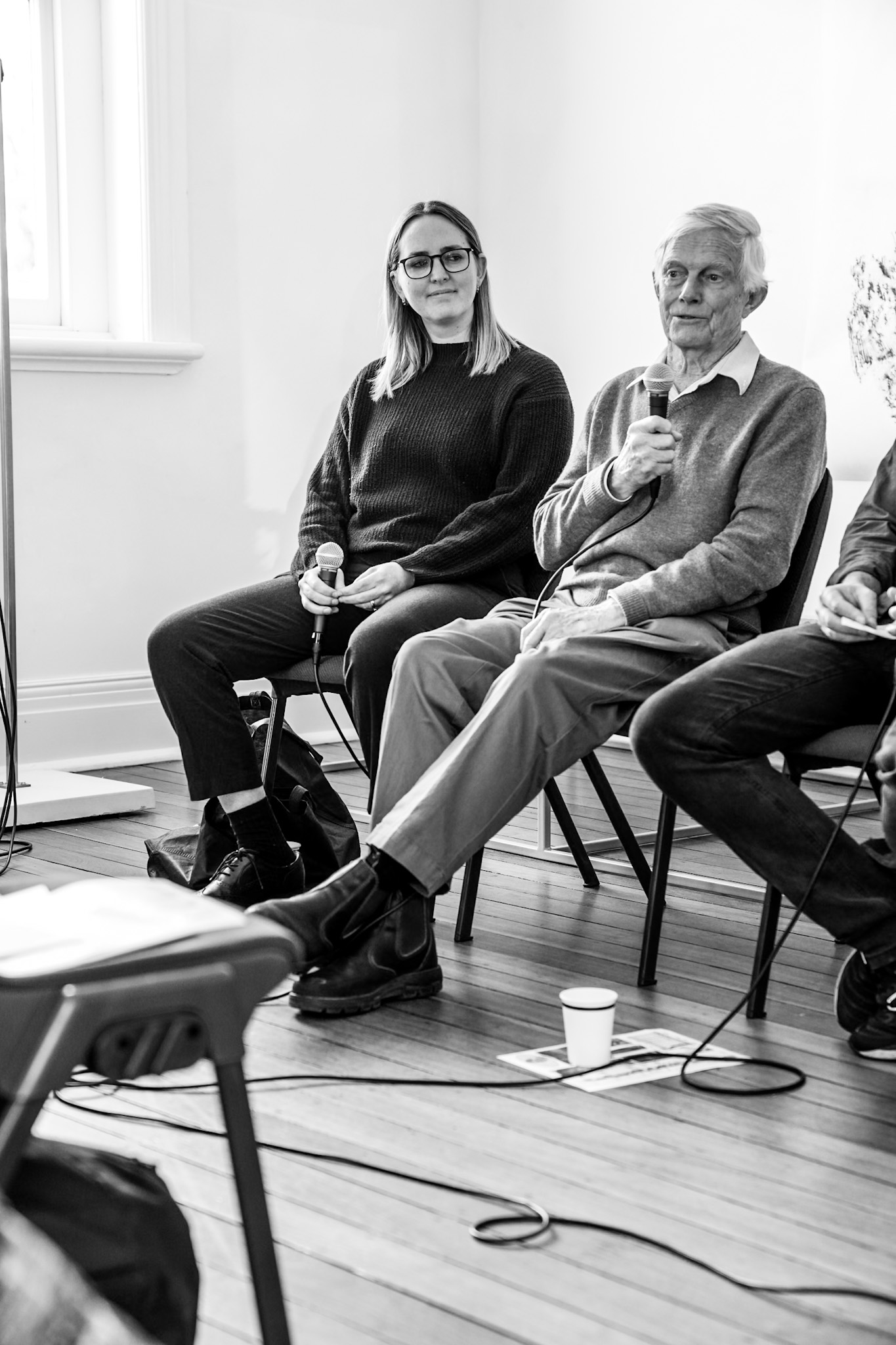
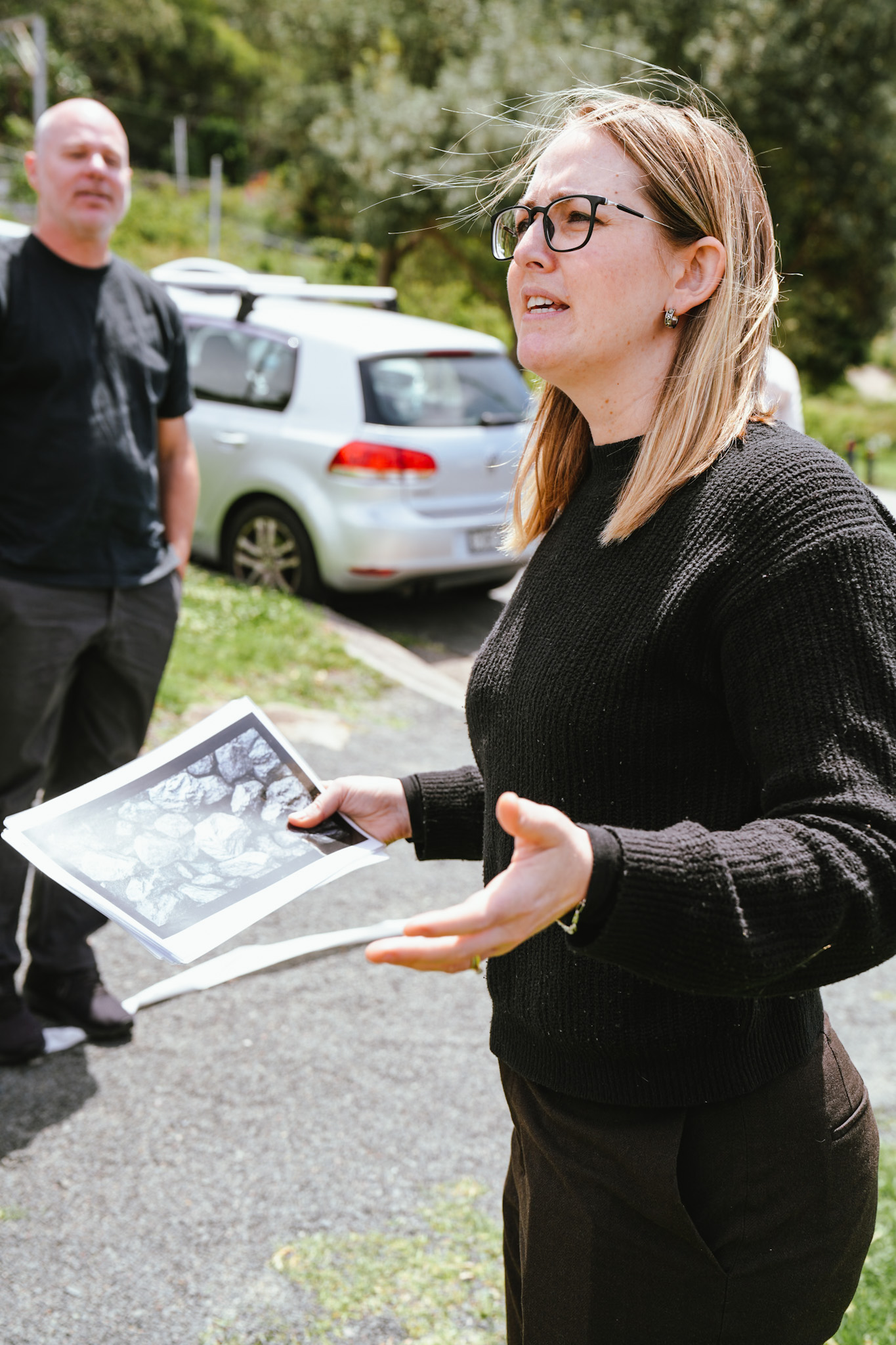
Biographies of symposium participants
Uncle Peter Button is a respected Aboriginal elder, environmental and cultural advocate. He was awarded Wollongong Aboriginal Male Elder of the Year 2022, is a co-founding member and caretaker of the embassy at Sandon Point and the chair of the Illawarra Local Aboriginal Land Council.
Tara Djokic is a geologist with a passion for science education and communication. Gaining a love of the natural world through the lens of geology, led to a passion for sharing its knowledge. Not something Tara expected to do across such an extreme range of audiences. She has presented for TED, appeared in an IMAX documentary, attempted Science Comedy for the Steam Room, and most recently met Jemima and Little Ted when she appeared on an episode of Play School’s Science Time, which aired in August this year. Tara is currently a Scientific Officer in the Palaeontology Collection, at the Australian Museum Research Institute, Australian Museum where she investigates the fossilisation processes (taphonomy) of an 11-16 million-year-old rainforest lake deposit called McGraths Flat, situated in the central tablelands of New South Wales on Wiradjuri Country, Australia. Tara has a fervour for seeking out the interconnections between life and geological history, lending a fresh perspective on our place in time and space.
Tyson Antonio Frigo is a Wiradjuri, Yuin man who works as the Curator of Indigenous Programs at the Australian Maritime Museum. He has a passion for creating space and fostering new ways of ‘acknowledging’ Indigenous materials whether it be artworks, objects or something beyond definition. He received tutelage from many great elders and ‘Blakacademics’ on the south coast during his formative years and considers his role as Murrigal or ‘strange traveller’- connecting with communities, listening, learning and doing what he can to connect them to the resources/institutions.
Peter Hewitt is a Jerrinja Yuin man with deep family, community, kinship and cultural connections, Peter weaves his expertise in education and creative arts in his role as a Senior Lecturer in Aboriginal Education at the University of Wollongong to help care for Country. He is currently undertaking a PhD on Country-centred approaches to curriculum in Initial Teacher Education and is the co-lead of the Country, Contexts, and Cultures focus area at the Early Start Institute, illustrating his commitment to respectful, Country-centred research. Peter’s contemporary painting practice spans over two decades, reflected through solo exhibitions and prestigious art prize recognitions. His paintings are housed in public collections at institutions including Wollongong City Gallery, Shoalhaven Regional Gallery, and have been in numerous art prizes including Parliament of NSW Aboriginal Art Prize and National Aboriginal and Torres Strait Islander Art Awards.
Brian Jones is a geologist whose research focuses on sedimentology predominantly in fluvial, lacustrine, coastal and shallow marine deposits ranging in age from Precambrian to Recent.For many years he has carried out research and led numerous field trips on coastal rock sequences from Eden to Sydney. One of his specialisations has been on the local Illawarra Coal Measures, Narrabeen Group and Hawkesbury Sandstone. Another is the effects of climate change on the coastal landscape over the past 125,000 years. He is a University Fellow in the School of Earth, Atmospheric and Life Sciences at the University of Wollongong, and a member of the ARC Centre of Excellence for Australian Biodiversity and Heritage (CABAH).
*Matt Poll* is the Manager Indigenous Programs at the National Maritime Museum, Sydney, where he works with First Nations communities to develop new ways of understanding marine and freshwater environments, and de-centre some of the colonial naval focus of the collection. He has worked in museums and art galleries for nearly 20 years. For the past seven years, he has been the Assistant Curator of the Macleay Museum Indigenous Heritage Collections as well as the University of Sydney Repatriation Project Officer. Matt previously worked as the artistic director of Boomalli Aboriginal artists cooperative as well as other positions at the Museum of Contemporary Art and Wollongong City Gallery. His current master’s by research project seeks to further develop methods of understanding the ways contemporary Aboriginal and Torres Strait Islander artists have used museum collections, historic records and archival materials in the reconstruction of cultural identities. It’s exploring how visual artists, in particular, have developed auto-ethnographic methods of engaging with historical information outside of academic frameworks.
Nicole Smede is a multidisciplinary artist of Worimi and European descent, living and creating on Dharawal Country. A classically trained Mezzo Soprano, she ran away from classical music early on to pursue wider artistic interests. Her voice can be heard on award winning films and soundtracks, and her poetry can be found in exhibitions, visual and sound pieces, anthologies and journals including Australian Poetry Journal, Mascara Literary Review, Never Heard of Them (2019, Baby Teeth Journal), Guwayu: for all times (2020, Magabala Books), What we Carry (2021, Recent Work Press), 20x20x12 Sensing Place (2021, Manta Publishing), Mantle (2022, SCWC), The Anabranch (2022, HWC), and Shoot the Breeze (2022, Girls on Key). Nicole has extensive experience as a cultural producer across multiple artforms including film, music, performance and visual art and is a passionate advocate for arts education and the revitalisation of First Languages. Nicole is a judge for the Reconciliation NSW Schools Reconciliation Challenge (since 2019) and she has worked with and facilitated workshops for The NSW Department of Education, The Song Company, Red Room, Bundanon Trust, Wollongong City Council, South Coast Writers Centre, Reiby Juvenile Justice Centre and schools across the NSW East Coast. Working closely with Elders and community, Nicole is currently the vocal coach for South Coast Yuin women’s choir Mudjingaal Yangumba, who weave language into original songs and storytelling.
Bronwyn Bailey-Charteris is a curator, theorist and writer. her work poses urgent questions at the intersection of contemporary art, ecology, and technology. Through curatorial projects, academic research, and international collaborations, she crafts new vocabularies for understanding how aesthetic practices navigate the complexities of our planetary crisis. She is author of The Hydrocene: Eco-Aesthetics in the Age of Water, Routledge, 2024.
This project has been assisted by the Australian Government through Creative Australia, its principal arts investment and advisory body, and the NSW Government through Create NSW.
The public programs held through the Clifton School of the Arts have been funded by the City of Wollongong.